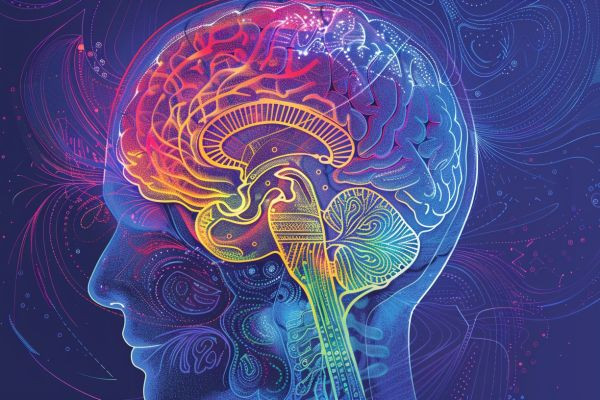Brain Training: A Pathway to Enhanced Cognitive Fitness
In today’s fast-paced world, the importance of mental agility has become paramount. We are constantly faced with new challenges that demand creative solutions, fast decision-making, and a sharp memory. Just as physical exercise strengthens muscles, brain training sharpens cognitive functions. Brain training, also known as cognitive training, encompasses activities designed to improve mental capabilities such as memory, attention, problem-solving, and reasoning. With increasing awareness of the mind's plasticity, brain training has gained attention not only for cognitive enhancement but also for mental health and age-related cognitive decline.
This article will explore the benefits of brain training, the science behind it, and practical strategies to integrate it into daily life.

The Science Behind Brain Training
The concept of brain training is deeply rooted in **neuroplasticity**, which is the brain's ability to reorganize itself by forming new neural connections. Neuroplasticity allows neurons (nerve cells) to compensate for injury, illness, and new situations by adjusting their activities in response to external stimuli or new experiences.
Our brains are not static; they constantly adapt, learn, and grow throughout our lives. This adaptability means that targeted brain exercises can strengthen particular cognitive functions, much like how specific workouts can target muscle groups in the body. Research has shown that engaging in mentally stimulating activities can encourage neuroplasticity, leading to improvements in memory, attention, processing speed, and other cognitive functions.
Benefits of Brain Training
1. Improved Memory: One of the primary benefits of brain training is enhanced memory. Memory exercises, like recalling lists, solving puzzles, or using memory-enhancing techniques like mnemonics, help strengthen the brain’s capacity to retain and recall information. Over time, these activities improve both short-term and long-term memory, which is crucial for everything from remembering names to mastering new skills.
2. Enhanced Problem-Solving Skills: Brain training activities that involve logic puzzles, strategy games, or complex problems help enhance problem-solving abilities. Regularly challenging the brain to find solutions to new problems can improve critical thinking, reasoning, and the ability to approach challenges from different angles.
3. Increased Focus and Attention: Brain training can also help enhance focus and concentration. Exercises designed to reduce distractions, improve sustained attention, and boost cognitive endurance help individuals maintain focus during tasks, increasing productivity and overall mental sharpness.
4. Slowing Cognitive Decline: As we age, our cognitive functions naturally decline. However, studies have shown that brain training can slow this process, reducing the risk of cognitive impairment and age-related diseases like Alzheimer’s. By engaging in consistent mental exercises, the brain stays active and continues to build neural connections, helping to stave off the decline.
5. Boosted Creativity: Brain training, particularly tasks that involve thinking outside the box or exploring new ideas, can also enhance creativity. Activities that encourage divergent thinking, such as writing, drawing, or brainstorming sessions, stimulate the brain’s ability to generate novel ideas and solutions.
6. *Improved Mental Health: Cognitive exercises are not only good for improving mental functions but also play a role in emotional regulation. Engaging the brain through activities that challenge the mind can provide a sense of accomplishment, reduce anxiety, and alleviate symptoms of depression by encouraging a positive and focused mental state.

Types of Brain Training Exercises
Brain training can take many forms, and there is a wide range of exercises that can target different cognitive functions. Here are some effective brain-training activities:
1. Puzzles and Brain Games
- Crossword puzzles, Sudoku, and logic puzzles: These traditional brain games engage the mind in problem-solving, improving memory and logical thinking.
- Jigsaw puzzles: Assembling a picture from scattered pieces enhances spatial awareness and visual memory.
- Chess and strategy games: Strategy-based games require planning, forward-thinking, and decision-making, boosting strategic and logical reasoning.
2. Memory-Enhancing Activities
- Card-matching games: These games strengthen short-term memory by requiring players to recall the positions of hidden cards.
- Story recall: After reading a story or hearing a narrative, try recalling the details as accurately as possible. This improves both memory and comprehension.
- Mnemonics and memory techniques: Techniques such as the method of loci (associating information with specific locations) help in improving recall.
3. Problem-Solving Challenges
- Math problems and puzzles: Solving mathematical equations or participating in mental math exercises stimulates analytical thinking.
- Riddles: Solving riddles or brainteasers enhances lateral thinking and encourages out-of-the-box problem-solving approaches.
- Programming and coding: Learning to code involves structured thinking, logical analysis, and pattern recognition, which are all vital cognitive functions.
4. Cognitive Flexibility Exercises
- Switching between tasks: Cognitive flexibility refers to the brain’s ability to shift between thinking about different concepts or adjusting to new information. Practicing multitasking or switching between unrelated tasks can improve this skill.
- Learning new skills: Taking up new hobbies or activities such as learning a musical instrument, a new language, or a new game stimulates new areas of the brain, encouraging cognitive flexibility and adaptation.
5. Mindfulness and Meditation
- While brain training often focuses on puzzles and memory games, mindfulness exercises also play a crucial role. Practices such as meditation and mindfulness increase focus and concentration, reduce stress, and improve cognitive control by encouraging awareness of the present moment.
6. Physical Exercise and Brain Training
- Physical activities like aerobic exercise (running, cycling) have a significant impact on brain health. They increase blood flow to the brain, promote the release of chemicals that protect brain cells, and enhance learning and memory. Combining physical activity with mental challenges, such as dancing (which requires memorizing steps) or playing sports (which involves strategic thinking), offers dual benefits for cognitive fitness.
Brain Training Apps and Technology
With the rise of digital technology, brain training has expanded beyond traditional puzzles and games. There are now many mobile apps and online platforms designed to offer cognitive exercises in a structured format. Popular brain training apps include:
- Lumosity: A widely used app that offers a variety of games targeting memory, attention, flexibility, speed, and problem-solving.
- Peak: Focused on mental agility, Peak offers personalized workouts that challenge cognitive abilities.
- Elevate: This app provides training in critical skills like reading comprehension, math, writing, and listening, making it a comprehensive tool for improving mental functions.
These tools provide an easy way to engage in brain training on the go, making it accessible for people with busy lifestyles.
Integrating Brain Training into Daily Life
To maximize the benefits of brain training, consistency is key. Just as regular physical exercise builds physical strength, regular mental exercise strengthens cognitive function. Here are some tips to seamlessly incorporate brain training into your daily routine:
- Set aside time each day: Just 10-15 minutes of dedicated brain training exercises can yield significant improvements over time.
- Challenge yourself: Gradually increase the difficulty of puzzles and activities to continually challenge your brain.
- Stay curious: Engage in activities that encourage learning and curiosity, such as reading books, listening to educational podcasts, or attending workshops.
- Combine physical and mental activities: For optimal brain health, combine mental training with physical exercise. A balanced approach will promote overall well-being.
Conclusion
Brain training is a powerful tool for enhancing cognitive fitness, improving mental health, and preventing age-related cognitive decline. By engaging in regular mental exercises, individuals can sharpen their memory, enhance problem-solving skills, boost creativity, and maintain cognitive flexibility throughout life. Whether through traditional puzzles, mindfulness practices, or technology-driven apps, the key to effective brain training lies in consistency and challenge, ensuring a sharper, healthier brain well into old age.



